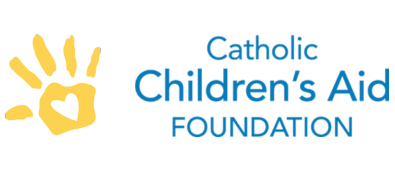What is HARP?
Traditional child welfare responses have focused on two paths: urgent protection, addressed through forensic investigation, and prevention and outreach, offered through community links. However, there was no path to help children in families living with chronic challenges. HARP, which stands for Holistic Assessment and Response Pathways, introduces a new pathway: a holistic response grounded in collaboration, a detailed assessment identifying strengths, supports and underlying needs, and oversight. Through this approach, workers can make thoughtful, community-informed decisions that provide families with the right support at the right time—before challenges become crises.
How it helps:
HARP shifts focus to family support instead of separating children
Child welfare research has shown that investigations can be categorized as chronic need (85%) or urgent protection (15%). Urgent protection cases involve situations requiring immediate intervention to ensure a child’s physical safety. Chronic need cases represent family situations with ongoing difficulties that affect a child’s development and wellbeing—such as poverty, housing issues, caregiver mental health, chronic school absence—but do not necessarily involve an immediate acute crisis. Children need support in both circumstances; using a differential response, HARP offers a new way forward providing tailored support to help families like Malik’s navigate challenges and access the right resources at the right time.
HARP recognizes that stable families are at the heart of child wellbeing
Child welfare is evolving beyond investigation and separation. Today, there’s a growing focus on helping children by strengthening families through prevention and early support. Research shows that children flourish best when they can have their needs met while staying with their families. HARP reflects this new compassionate approach to supporting young people by helping their families stabilize before problems become crises.
Struggling families get timely help through community partnerships
The HARP model emphasizes collaborative support that’s community-based, culturally relevant and effective. Instead of being added to waitlists, families receive immediate help through partnerships with trusted community organizations like TAIBU, Strides and FoodShare so they can access:
- Mental health care
- Navigation and support for children with special needs
- Fresh produce to feed growing kids
- Emergency financial assistance for needs such as housing or transportation
Your impact:
Thanks to donor support, families get stronger
This new way of working, grounded in Catholic values, isn’t government-funded; it depends on donor support to create lasting change. Every contribution helps keep children safe and loving families together. Preliminary results are promising based on 270 families supported by HARP last year:
- Families supported by HARP are less likely to return to the CCAS in a crisis.
- Only 1% of HARP cases resulted in a child being taken into care—half the rate under the standard system.
- More families are now connected to stable, ongoing supports
- Families report feeling heard, seen and understood.
Read more inspiring stories

Malik’s story: Back in school after bullying
A child and parent in trouble received support on many fronts—now, they’re both back on track
See more programs

Sweet Dreams
Providing new cribs, toddler beds and sleepwear to keep vulnerable little ones safe

Camps 4 Kids
CCAF donors help send Toronto children and youth in care to overnight and day camps

Youth Readiness Program
Building skills and connections to help youth transition safely to independence when they age out of care
